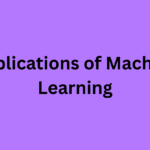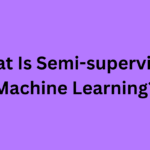Employability Skill and Development
Chapter 1: Introduction to Employability Skills
1.1 Definition and Importance
1.2 Key Employability Skills for Engineers
1.3 Employability Gap in the IT Industry
1.4 Role of Soft Skills in Career Development
1.5 Lifelong Learning and Adaptability
Chapter 2: Communication Skills
2.1 Verbal Communication
Public speaking, meetings, interviews
2.2 Non-Verbal Communication
Body language, eye contact, posture
2.3 Written Communication
Emails, resumes, reports
2.4 Listening Skills
Active listening, empathy
2.5 Barriers to Effective Communication
Chapter 3: Personality Development
3.1 Self-awareness and Self-confidence
3.2 Grooming and Etiquette
3.3 Goal Setting and Time Management
3.4 Emotional Intelligence (EQ)
3.5 Stress and Anger Management
Chapter 4: Teamwork and Leadership
4.1 Working in Teams
Collaboration and conflict resolution
4.2 Leadership Skills
Vision, motivation, responsibility
4.3 Decision-Making and Problem-Solving
4.4 Negotiation and Persuasion
4.5 Case Studies on Effective Team Leaders
Chapter 5: Resume Building and Interview Skills
5.1 Resume Writing
Structure, keywords, customizations
5.2 Cover Letter and LinkedIn Profile
5.3 Types of Interviews
HR, technical, group discussions
5.4 Mock Interviews and Feedback
5.5 Do’s and Don’ts in Interviews
Chapter 6: Digital and Technical Skills for the Workplace
6.1 MS Office and Google Workspace Proficiency
6.2 Basic Programming and Web Skills
6.3 Online Learning Platforms (MOOCs)
6.4 Cyber Etiquette and Digital Citizenship
6.5 Tools for Collaboration (Slack, Trello, Git)
Chapter 7: Entrepreneurship and Innovation
7.1 Entrepreneurial Mindset
7.2 Ideation and Business Model Canvas
7.3 Startups vs Corporate Careers
7.4 Funding and Incubation Opportunities
7.5 Case Studies of Student Entrepreneurs
Chapter 8: Industry Readiness and Workplace Etiquette
8.1 Corporate Culture and Expectations
8.2 Workplace Ethics and Professionalism
8.3 Adapting to Change and Continuous Improvement
8.4 Remote Work Etiquette and Hybrid Work Models
8.5 Work-Life Balance






